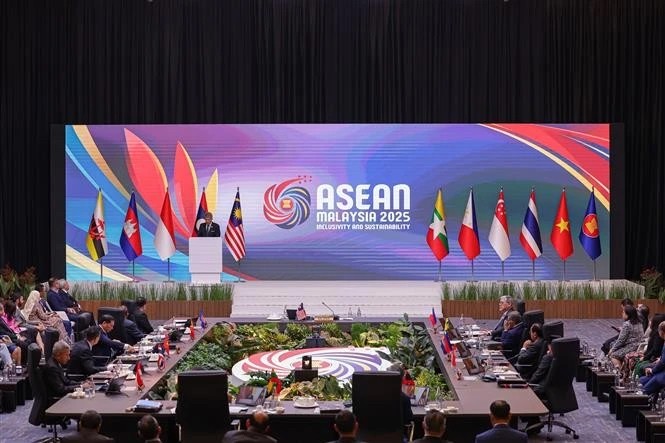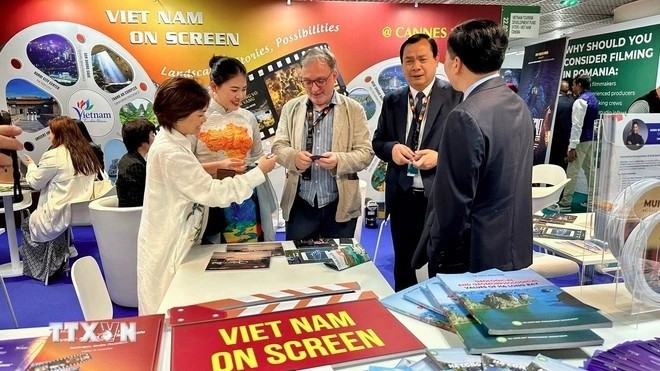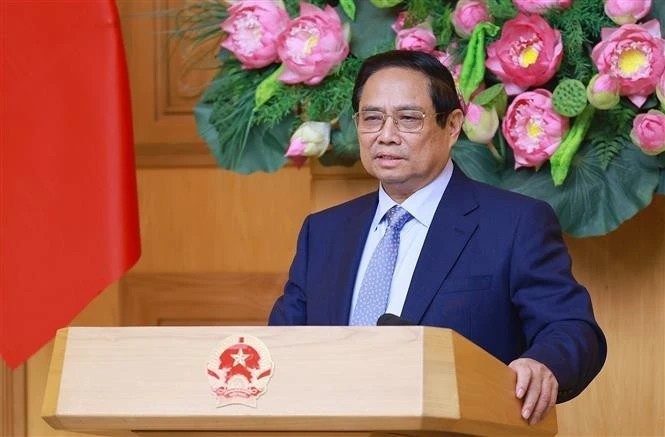Vietnam News Today (May 24): Vietnam, Finland Discuss Ways to Boost Labor Cooperation
| Vietnam News Today (May 24) notable headlines Vietnam, Finland discuss ways to boost labor cooperation Vietnam puts forward initiatives to promote Asia’s role and sustainable development Vietnam, Cambodia work to raise public awareness of bilateral ties: Spokeswoman Vietnam emerges as a popular tourist destination for Korean holidaymakers Vietnam vows to digitize greenhouse-gas emissions inventory Vietnam, RoK strengthen anti-corruption cooperation Deputy PM meets Cambodian, Singaporean counterparts in Tokyo Deputy PM Le Minh Khai attends 29th Future of Asia Forum Vietnam Day held at Moscow universit |
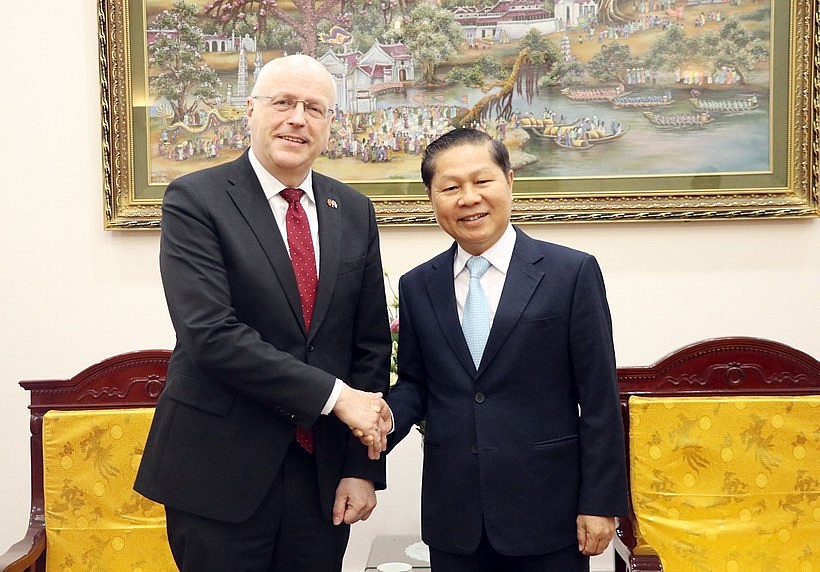 |
| Deputy Minister of Labour, Invalids and Social Affairs Le Tan Dung (R) and Finnish Ambassador to Vietnam Keijo Norvanto (Photo: VNA) |
Vietnam, Finland discuss ways to boost labor cooperation
Deputy Minister of Labor, Invalids and Social Affairs Le Tan Dung held a working session with Finnish Ambassador to Vietnam Keijo Norvanto in Hanoi on May 23, during which they discussed measures to promote cooperation in vocational education and sending Vietnamese workers to Finland.
Dung proposed Norvanto continue to act as a bridge to coordinate and step up cooperation activities in vocational education such as building and developing training institutions of Finland, establishing a quality assessment system that meets international standards, connecting Vietnamese vocational education institutions with Finnish businesses in Vietnam, enhancing the capacity of management officials and teachers, and selecting support for technology transfer and training courses aligned with Finland's key strengths.
While acknowledging the absence of a formal labor cooperation agreement between the two countries, Dung highlighted the recent trend of receiving Vietnamese guest workers to Finland, saying that since late 2023, about 20 Vietnamese workers have secured jobs in various sectors, including nursing, welding and forestry.
Amid the labor shortage caused by an aging population and a low birth rate, Norvanto said the Finnish Government launched the pilot Talent Boost Program to attract workers, experts and entrepreneurs during 2020-2022 to draw 50,000 immigrants for employment to Finland by 2030 and 250,000 by 2050, cited VNA.
Vietnam, alongside Brazil, India, and Turkey, has been identified as a key source country for this initiative, he said.
He urged the Vietnamese Ministry of Labor, Invalids and Social Affairs (MoLISA) to prioritize strengthening bilateral labor cooperation, specifically by expeditiously studying and signing a Memorandum of Understanding outlining a framework for Vietnamese laborers working in Finland.
With the upcoming visit of the Finnish Minister of Employment to Vietnam in January 2025, he expressed his desire for close collaboration between MoLISA and the Finnish Embassy to solidify cooperation plans.
Vietnam puts forward initiatives to promote Asia’s role and sustainable development
Vietnamese Deputy Prime Minister Le Minh Khai delivered a speech at the 29th Future of Asia Forum in Tokyo, Japan, on May 23, putting forward a number of initiatives to promote Asia’s role and sustainable development amidst global complications.
He said Asia remains a dynamic and steady growth region, citing the fact that after each crisis in the past three decades, Asia has overcome difficulties, resolved challenges, developed more strongly and truly become a role model of development with pioneers and leaders in many new fields.
To promote its role and development in the future, he said it’s necessary for Asia to maintain a peaceful and stable environment as a premise for cooperation and development, while respecting the United Nations Charter and international law, especially the 1982 United Nations Convention on the Law of the Sea.
In his viewpoint, benefits from trade and investment liberalization are distributed widely and equally among countries, and countries uphold multilateralism and take a global, all-people, comprehensive approach in solving common challenges.
The Deputy Prime Minister called on regional partners to promote and strengthen the adaptive capacity and resilience of Asian economies and businesses. According to him, through multilateral frameworks, regional economies need to increase information sharing, coordinate macro policies, and promptly promote regional and inter-regional economic cooperation initiatives, according to VOV.
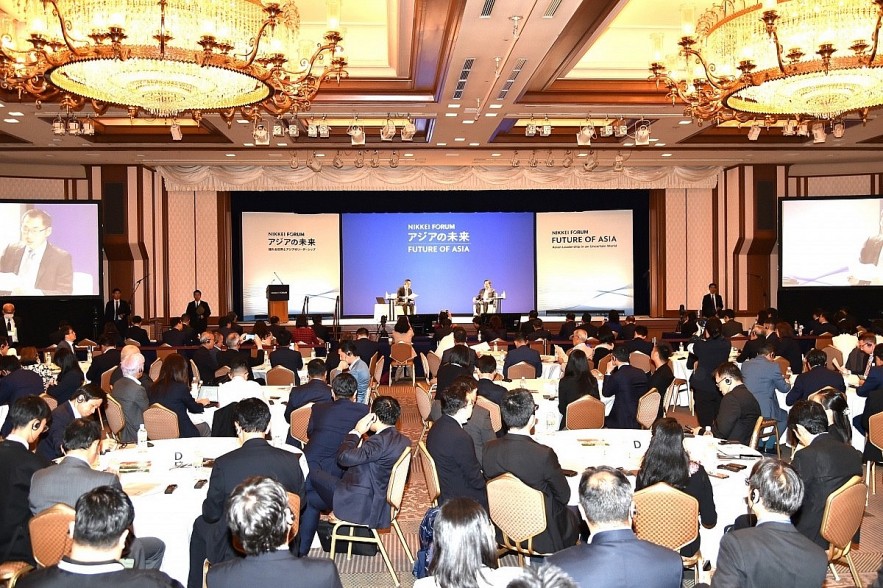 |
| Vietnamese Deputy Prime Minister Le Minh Khai delivered a speech at the 29th Future of Asia Forum in Tokyo, Japan, on May 23. (Photo: VGP) |
Cooperation on food security, energy security, cyber security and trade connections to diversify supply sources is necessary to contribute to strengthening the economic security of the Asian region, he stressed.
He also suggested bringing into full play resources to promote new growth drivers in the green economy and digital economy, saying regional economies need to prepare to welcome new development trends, such as artificial intelligence, quantum computing, and new energy; pilot and replicate green, circular, and sharing economy models; and enhance the implementation of regional initiatives such as Japan’s Asia Zero Emission Community (AZEC) initiative; the ASEAN Digital Economy Framework Agreement, the ASEAN Blue Economy Framework, and the ASEAN Strategy for Carbon Neutrality.
To do this, the Deputy Prime Minister requested that developed countries continue paying attention to and providing support to developing countries in terms of finance, technology transfer, and improving capacity building to implement commitments on green growth, emission reduction, climate change adaptation, and human resources training.
Amidst common challenges in the region, the Vietnamese leader called on businesses to accompany the governments in implementing its commitment to sustainable development, towards long-term economic, environmental and social goals. He underscored the need to increase investment in science - technology, and human capital, and in building inclusive, self-reliant communities, considering this an opportunity for Asian businesses to establish positions in global supply chains.
The Deputy Prime Minister expressed his hope that leaders would support youth exchange programs to strengthen mutual understanding and build up trust for the next generations.
He also highly appreciated Japan’s role in shaping Asia’s future development, saying as one of the most developed economies in the region, Japan has made important contributions to regional cooperation and development over the past decades. He expected that Japan, with its advantages in capital, technology and governance, would continue to play a leading role in promoting regional economic cooperation and development, as well as supporting and accompanying partners in Asia and ASEAN on this journey.
At the meeting, Deputy PM Khai affirmed that Vietnam is part of the great Asian family, and it wishes to further promote its role as a good friend, a reliable partner, and a responsible member of the region and the international community.
He briefed delegates on Vietnam’s recent development achievements and its policy line, saying the country is entering a new stage of development with the vision of becoming a developed economy by 2045.
To realize the goal, he said Vietnam focuses on implementing three strategic breakthroughs, namely economic institutions, infrastructure and human resources; steadfastly building an independent, self-reliant economy closely linked to deep, active and effective international integration; and persistently implementing the foreign policy line of independence, self-reliance, peace, friendship, cooperation and development, along with multilateralization and diversification of foreign relations.
He also assured that the Government of Vietnam accompanies foreign investors to iron out snags for win-win results.
Vietnam, Cambodia work to raise public awareness of bilateral ties: Spokeswoman
Based on good neighborliness, traditional friendship, comprehensive cooperation and long-term sustainability, competent agencies of Vietnam and Cambodia have taken many practical and effective measures to help their people and future generations clearly and fully understand the bilateral relationship, making it stronger, for the sake of their people, Spokeswoman of the Vietnamese Ministry of Foreign Affairs Pham Thu Hang said on May 23.
Hang made the comment while answering a reporter's query on Vietnam’s view on Cambodia’s request for its cooperation in verifying the information that some social network accounts, supposed to belong to Vietnamese citizens, post inappropriate comments on the account of President of the Cambodian Senate Samdech Techo Hun Sen.
This does not represent the views of the Vietnamese Government and people, she said, referring to the personal opinions believed to be from Vietnamese accounts, VNA reported.
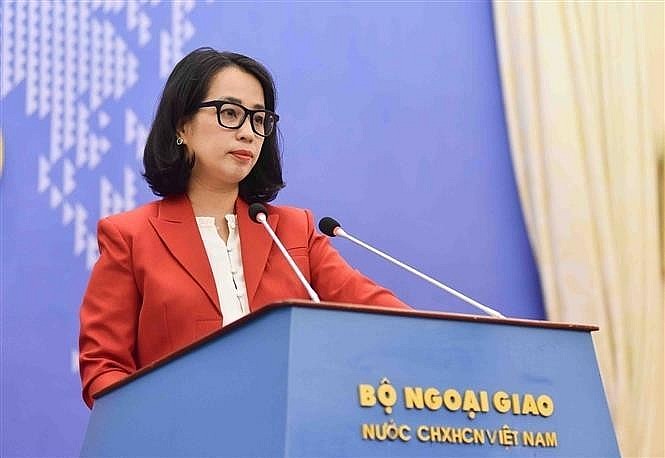 |
| Spokeswoman of the Vietnamese Ministry of Foreign Affairs Pham Thu Hang. (Photo: VNA) |
“We do not agree with provocative opinions and comments, undermining the good sentiments between the Vietnamese and Cambodian people, and criticizing their leaders,” the spokeswoman stressed.
“In that spirit, we believe that Vietnam and Cambodia will continue to coordinate closely in sharing information in many fields, including the Funan Techo canal project and the research on its cross-border impacts, thereby ensuring the harmony of interests of countries and residents living along the Mekong River, and effectively and sustainably managing and using its water resources,” Hang said.
Vietnam emerges as a popular tourist destination for Korean holidaymakers
As many as 846,434 Korean tourists visited Vietnam in April, accounting for 31.1% of over 2.7 million Korean tourists traveling to Southeast Asian countries, according to the Republic of Korea (RoK)’s Ministry of Land, Infrastructure and Transport.
With a number of popular tourist destinations such as Da Nang, Nha Trang, and Phu Quoc, the country has emerged as the leading tourist destination in Southeast Asia for Korean tourists in recent years.
Statistics indicate that apart from the coastal central city of Da Nang, a popular tourist destination among Korean travelers, other destinations such as Nha Trang, Phu Quoc, and Da Lat have proved popular among Koreans recently.
April alone saw nearly 73,865 Korean tourists book flights from Seoul to Da Nang, while roughly 141,130 other visitors traveled by air from the RoK to Nha Trang.
Furthermore, the air route from the RoK to Phu Quoc island city also recorded 53,680 Korean passengers, cited VOV.
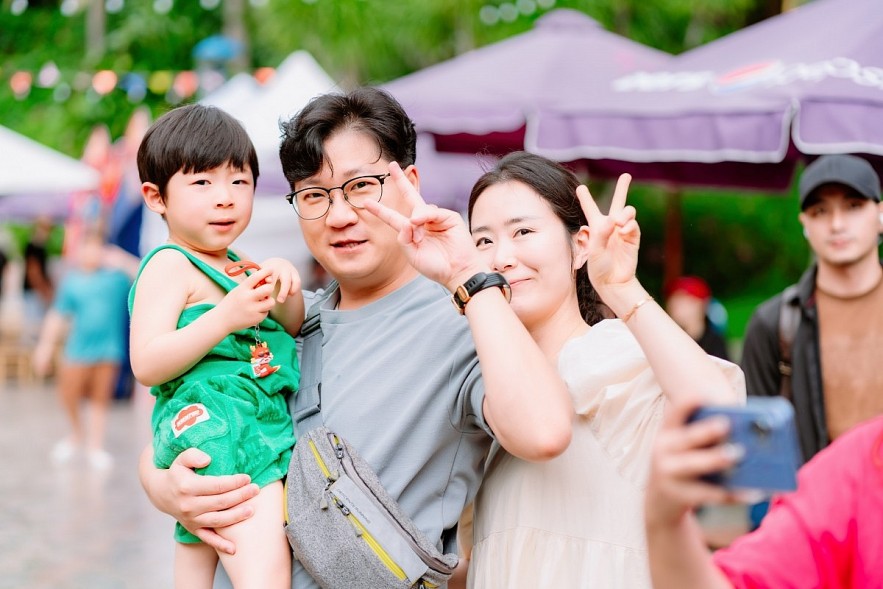 |
| Photo: VOV |
To meet the rising demand of visitors from this market, low-cost Korean airlines have increased their flights to Vietnam, with a focus on expanding routes to Nha Trang and Phu Quoc as opposed to Da Nang.
Accordingly, T'way Air has opened an additional Busan-Nha Trang route with a flight frequency of one flight per day as of May. It has also raised its daily air routes to Nha Trang to three with departure points from Incheon, Cheongju, and Busan.
Meanwhile, the Daegu-Nha Trang route is expected to resume operations from June 19 after a hiatus caused by COVID-19.
Moreover, Eastar Jet, which had already operated flights from Incheon to Nha Trang, also unveiled its plan to launch a new route to Phu Quoc starting from July 19 with a frequency of seven round trips per week.
Vietnam vows to digitize greenhouse-gas emissions inventory
Greenhouse-gas emissions stocktaking is difficult for many Vietnamese enterprises, but if the process is digitized, it could take only seven days and save a lot of money.
To reduce emissions to zero by 2050 as committed by the government of Vietnam at COP26, the Ministry of Natural Resources and Environment (MONRE) has joined forces with agencies to submit to the Prime Minister a list of business fields and facilities that must carry out greenhouse-gas emission inventory.
The list includes facilities in industry and trade, transportation, construction, natural resources with annual emissions of 4,000 tons of CO2 equivalent and higher.
Also on the list are thermal power plants, industrial production facilities, commercial buildings, cargo transport firms that consume 1,000 tons of TOEs (tons of oil equivalent) or higher; and facilities that treat solid waste with annual capacity of over 65,000 tons.
In addition, agencies have proposed adding husbandry to the list.
It is estimated that about 3,000 businesses in Vietnam have to carry out mandatory greenhouse-gas emission stocktaking. They have to do this once every two years; and implement plans to mitigate greenhouse-gas emissions. They have the responsibility of reporting the emission reductions by December 31.
Livestock facilities, however, have voiced their concern about the mandatory inventory, saying that it is difficult for them to do.
Nguyen Xuan Duong, chair of the Vietnam Livestock Association, agrees that reducing greenhouse-gas emissions and protecting the ozone layer is the right policy, but says this will put a heavy burden on the industry.
It is estimated that each livestock facility will have to pay VND100-150 million a year for stocktaking. Meanwhile, the majority of livestock establishments don’t have qualified workers to conduct the stocktaking, except for some milk-cow and pig breeder farms which use professional staff.
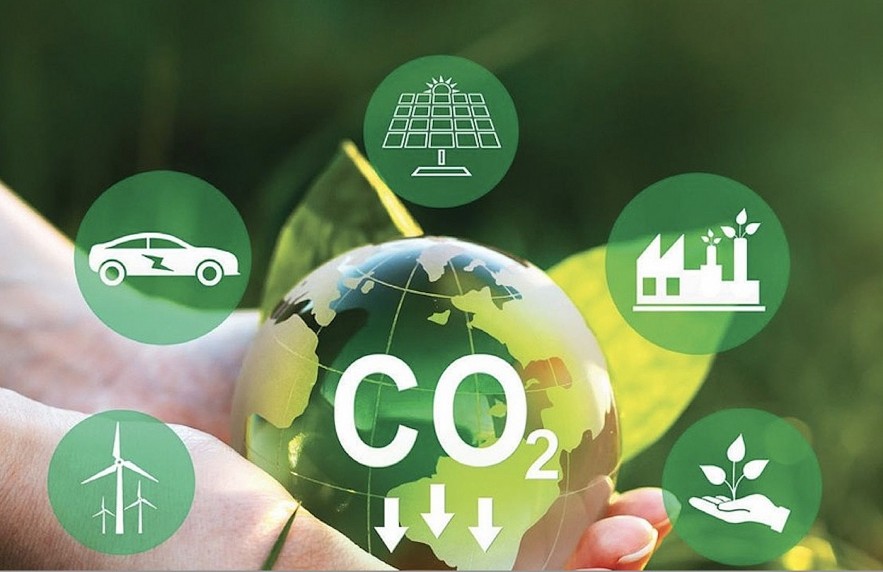 |
| Photo: VNN |
The stocktaking at the TH Group is an example. A representative of the large dairy producer said it was very difficult to do in the first two years of the four years of stocktaking implementation, though TH Group had made a big investment and was well-prepared.
Ngo Hoang Ho from Vietnam NOK said the stocktaking process is complicated, adding that the majority of enterprises still don’t know what they have to do. Ho had to attend a short-term training course on greenhouse-gas emission stocktaking to build an emission reduction roadmap for the company.
Many small and medium sized enterprises have to hire other units to do the stocktaking, which costs them a lot of money. He suggested that there should be a simple toolkit for enterprises to do the inventory themselves and make reports.
Digitization solution
At a seminar on promoting digitization in agriculture, Vu Minh Quang from FPT IS said that inventorying greenhouse gas emissions will help mitigate emissions, which will reduce production costs, because emissions are associated with energy consumption and spending in supply chains.
He said that the shift to green food suppliers all over the world has opened up new opportunities for enterprises.
When reducing emissions, enterprises’ risks will also fall because CBAM (Carbon Border Adjustment Mechanism) will begin to tax carbon from 2026, VNN reported.
The EU has already begun applying CBAM to control emissions and apply carbon tax on imports to the EU, including steel, aluminum, cement, electricity and fertilizer. The US is also considering applying CBAM for eight products related to Vietnam’s exports.
Quang anticipates Vietnamese enterprises facing great challenges when having to inventory greenhouse gas emissions. They will have to spend time to collect data and calculate complicated emission coefficients. It is also difficult to make reports because each country and organization sets specific reporting models.
Enterprises may have to pay hundreds of million of dong, or billions of dong, and take 3-6 months for annual stocktaking.
However, the good news is that the work will be easier if enterprises digitize. Quang said FPT has built a platform that digitizes the stocktaking process called VertZéro.
The tool is expected to help reduce the time needed for stocktaking to seven days and cut costs by 90 percent.
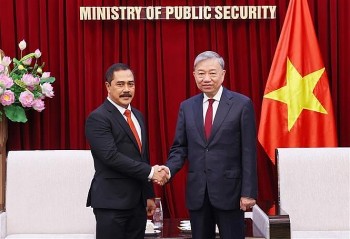 | Vietnam News Today (May 21): Vietnam, Indonesia Step Up Security Cooperation Vietnam News Today (May 21): Vietnam, Indonesia step up security cooperation; Time Out lists Hoi An among best places to travel in July; People-to-people diplomacy ... |
 | Vietnam News Today (May 22): More leading retailers seek Vietnamese suppliers at International Sourcing 2024; Vietnam to host 33rd meeting of ASEAN Directors-General of Customs ... |
 | Vietnam News Today (May 23): Vietnam’s Exports Via E-commerce On The Rise Vietnam News Today (May 23): Vietnamese, Chinese coast guards conduct joint patrol in northern Gulf of Tonkin; Vietnam’s exports via e-commerce on the rise; Blue-beret ... |
In topics
 National
National
Vietnam News Today (May 31): Vietnam Strongly Supports Laos’s National Development
 National
National
Vietnam News Today (May 30): Vietnam, Venezuela Reinforce Ties Through People-to-people Diplomacy
Recommended
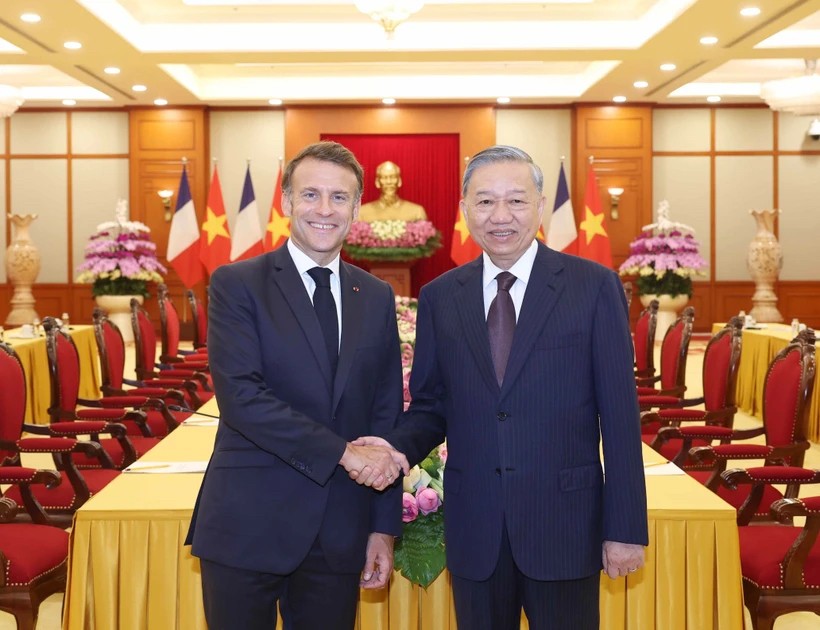 National
National
Vietnam News Today (May 27): Vietnam Treasures Multifaceted Collaboration with France
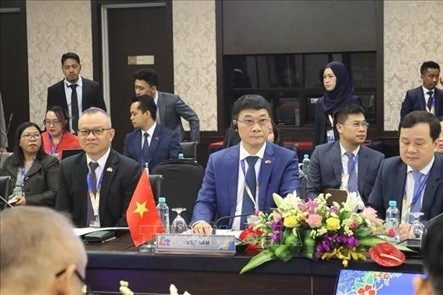 National
National
Vietnam Commits to Building an Inclusive, Sustainable and Cohesive ASEAN
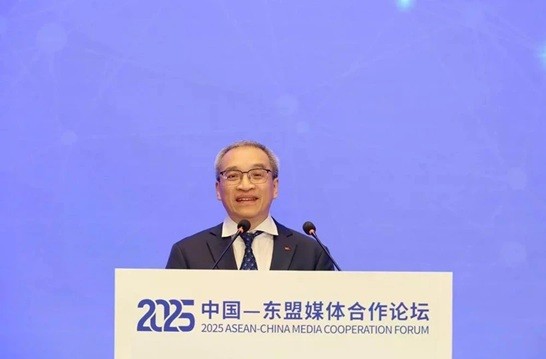 National
National
Vietnam Proposes Vision for Responsible Digital Journalism Cooperation
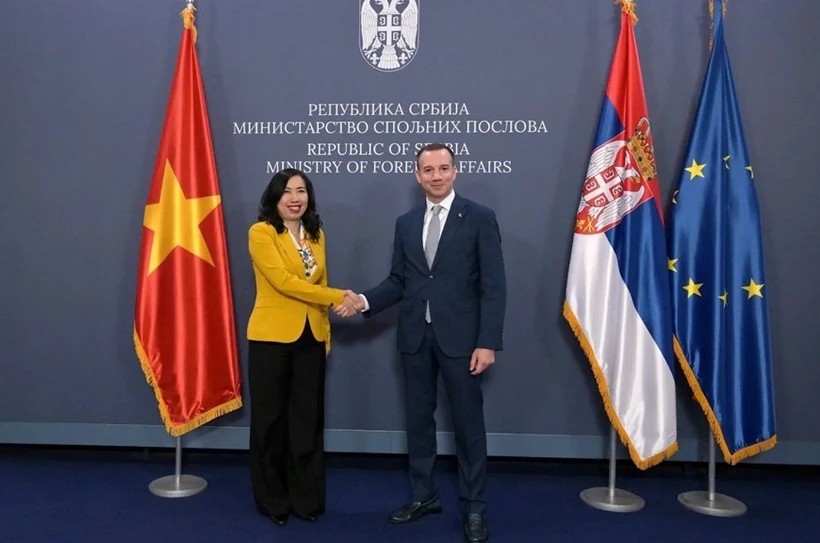 National
National
Vietnam News Today (May 25): Vietnam, Serbia Hold Political Consultation
Popular article
 National
National
Vietnam News Today (May 30): Vietnam, Venezuela Reinforce Ties Through People-to-people Diplomacy
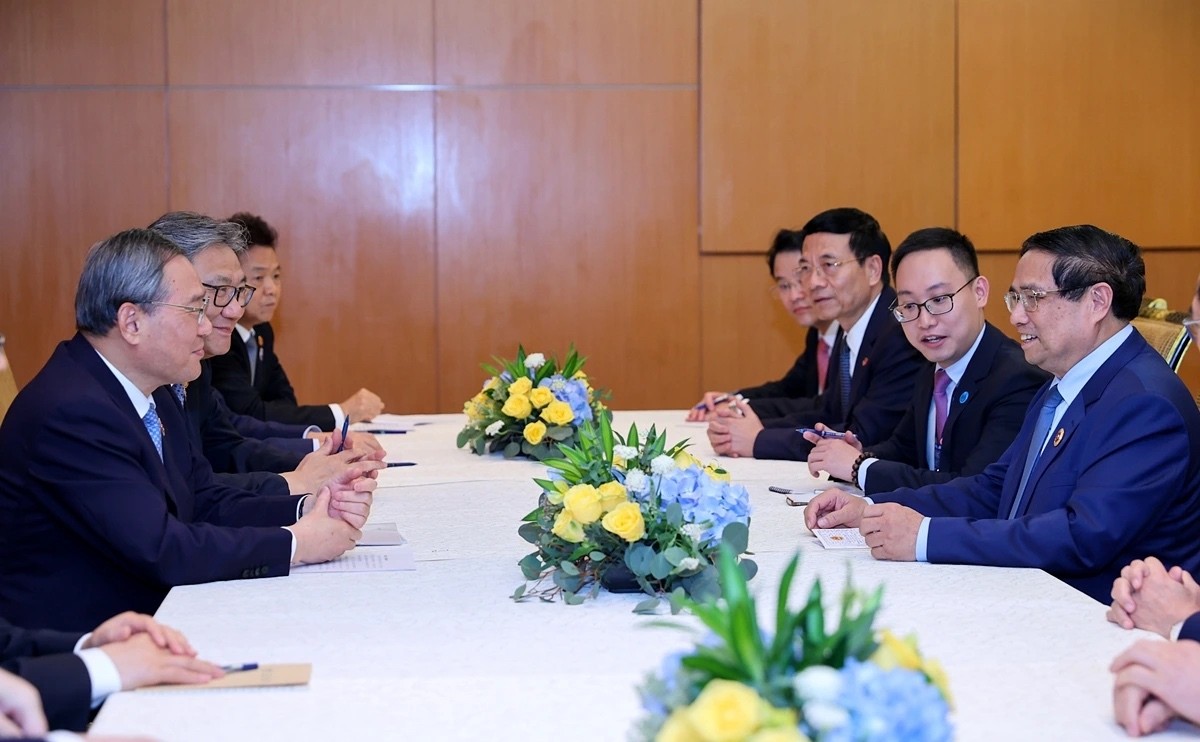 National
National
Vietnam News Today (May 28): Vietnam and China Discuss Strategic Cooperation Orientations
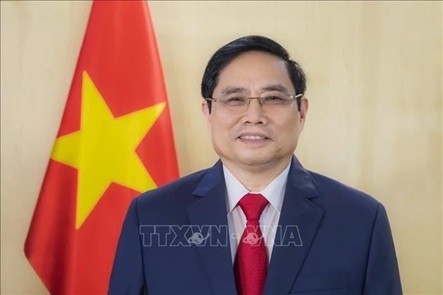 National
National
PM to Depart for Official Visit to Malaysia, Attendance at 46th ASEAN Summit
 National
National




